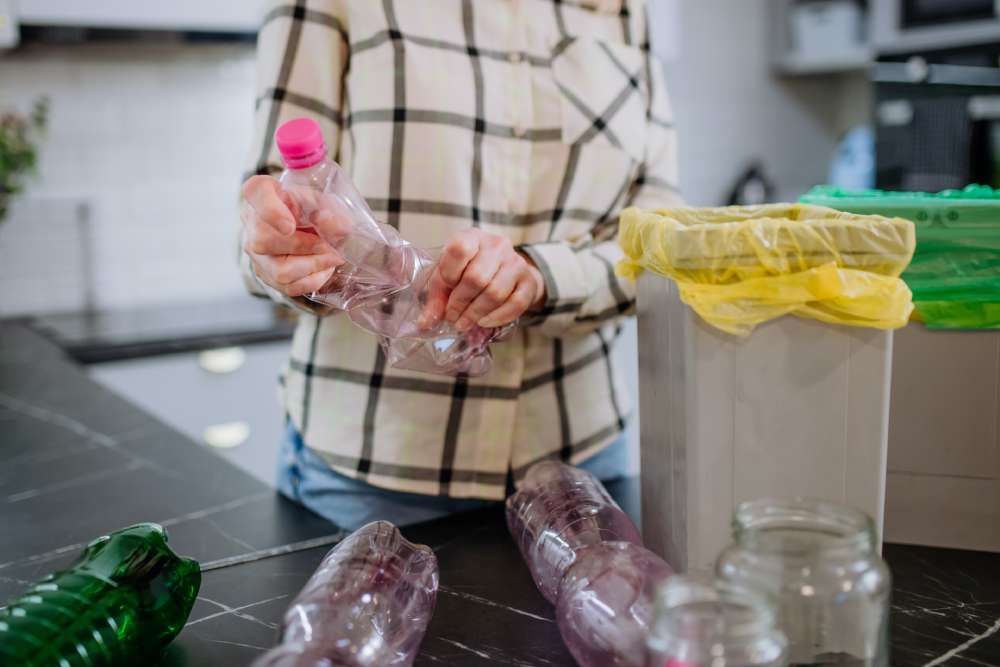
Why Is Industrial Plastic Recycling Important?
Plastic recycling is a crucial step toward sustainability. It saves companies that pay to rent trash hauling services money by decreasing landfill bills.
Sadly, the plastic and petrochemical industries are continuing to push recycling while using their influence to dismantle protections of human rights and the environment. They also promote advanced chemical (burning) recycling, which releases climate-warming greenhouse gases.
Saves Energy
While creating new plastics does require a certain amount of oil, recycling old plastics greatly reduces the need for more oil. This, in turn, lowers production-related greenhouse gases and other pollutants.
In addition, incineration of plastics can provide useful energy and significantly reduce the need for landfill space. However, removing contamination from the waste is important to maximize the energy content.
During interviews with workers and residents of several industrial plastic recycling facilities, Human Rights Watch found that people are exposed to harmful chemicals while working at the plants. When inhaled, these chemicals can lead to various health problems.
As a result, many of these workers suffer from respiratory issues such as asthma and emphysema. Some even have cancer and other life-threatening illnesses. Additionally, nearby communities are often affected by the noise and smoke from these facilities.
Thankfully, some of these hazards can be minimized by providing proper ventilation systems and ensuring workers wear protective equipment. It includes masks and other safety gear. Moreover, companies should also consider designing products that are easy to recycle and minimize the use of toxic chemical additives.
Saves Natural Resources
Using recycled plastic reduces the need to use natural resources for new plastics. Reusing and recycling plastics also saves energy. For example, producing 1 ton of recycled polypropylene requires less energy than manufacturing it from raw materials.
Reducing the need for fossil fuels is critical to reducing environmental impact. Oil is a finite natural resource, and recycling plastics helps decrease demand. It takes millions of barrels of crude oil to produce the plastics we use yearly, and recycling just 1 ton of plastics can offset this energy consumption.
Alternatively, the incineration of plastics reduces the need for landfill space and can provide useful energy through steam or electricity. However, this process is not without risk. Incineration may release toxic chemicals like dioxins and other polychlorinated biphenyls into the atmosphere. Industrial plastic recycling is safer for the environment, workers, and surrounding residents, and it can benefit communities economically.
Saves Landfill Space
Industrial plastic recycling helps to reduce the amount of space taken up by garbage. The recycling process turns the raw materials used to create plastic into new items, meaning the material doesn’t have to be stored or thrown away. It also saves landfill space and prevents pollution and littering.
The waste from plastic products is often sent to a waste-sorting facility, known as a materials recovery facility (MRF), which takes care of the recycling process. Sorting helps separate the different plastic types, as each style has its particular value. It also allows the reprocessing of the plastics at facilities geared toward the specific type of collected plastic.
One of the main reasons industrial plastic recycling is important is because it helps to protect natural ecosystems and wildlife. A lot of the plastic dumped in the oceans is eaten by animals, which can lead to illness and even death. Industrial plastic recycling can help to prevent this by keeping the plastics away from water sources and preventing them from being thrown into landfills, where they can cause more harm.
Reduces Oil Consumption
Industrial plastic recycling keeps tons of plastic waste out of landfills, conserves natural resources, saves energy, reduces greenhouse gas emissions, and avoids the need to extract new materials. It also helps to promote circular economy principles, where waste is minimized, and materials are reused, thereby reducing the demand for virgin products and creating sustainable economies.
Manufacturing new plastic requires a lot of energy sourced from precious natural resources such as petroleum, coal, and natural gas. This consumption can be significantly reduced by recycling discarded and old plastics, as it does not require the same energy level.
It also helps reduce oil consumption, as millions of barrels of crude oil are used yearly to make plastics from scratch. This is because chemical recycling reverses polymerization during plastic production and does not need as much energy. This is why recycling as much as possible is important, as not letting these valuable raw materials go to waste. This is especially true for stretch wrap, which can be recycled and reused for shipping your product or pallets worldwide.
Reduces Pollution
Plastic production, use, and disposal are linked to negative environmental impacts and greenhouse gas emissions. Recycling plastic reduces these impacts by minimizing the amount of waste produced and reducing energy consumption.
Recycling also saves landfill space and prevents pollution. Landfills are harmful to the environment and can release methane, a more potent greenhouse gas than carbon dioxide. In addition, many dumps contain toxic chemicals that leach into the soil and water. Plastic recycling diverts waste from landfills and incinerators, preventing these harmful effects.
While industrial plastic recycling has numerous environmental benefits, it is important to consider the human rights and working conditions at plastic recycling facilities. Workers are exposed to harmful chemicals while working in or living near plastic recycling plants, which can result in serious health problems.
Some plastic recycling processes also generate greenhouse gases that contribute to climate change. By ensuring proper working conditions, companies can minimize the negative effects of their manufacturing practices while producing high-quality products that customers want.
